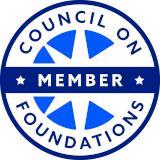Strategic Plan 2022-2027

- What We Learned
- Community Needs and Priorities Assessment
- Mission, Vision of Impact for Our Community, and Core Values
- Strategic Goals
Introduction
Main Street Community Foundation (MSCF) was founded in 1995 with the goal of supporting the Connecticut towns of Bristol, Burlington, Plainville, Plymouth, Southington, and Wolcott. The Foundation works closely with donors across the region to provide community members with opportunities to give back and support their community; and provides vital funding to non-profit organizations providing services to local residents.
Due to the generosity of donors and the commitment of MSCF staff, the Foundation has experienced tremendous growth in recent years, both in regards to the number of donors and the scale of funds managed by the Foundation. The total amount of grants made grew by almost 12% during the period of COVID, increasing from $1,943,125 in FY19 to $2,173,618 in FY21.
In January 2022, MSCF began the process of strategic planning, with the goal of articulating an updated vision and goals to guide its work in the coming years. Of particular importance in this planning process was hearing from donors, grantees, and community leaders across the service area, to ensure that MSCF is planning with these critical partners in mind.
The strategic plan, approved by the MSCF Board of Directors in June 2022, identifies targeted priorities rather than addressing all of the Foundation’s needs and activities. Much of the work we have done in the past will continue, but we believe the priorities identified here will strengthen our organization and ultimately our community.
What We Learned
Through surveys, interviews, review of secondary data and analysis of historic grant making, MSCF was able to formulate an analysis of the current state of the Foundation and questions necessary to plan for the future. MSCF learned a tremendous amount about the perceptions of the Foundation from its donors and grantees as follows:
- Over 95% of donors and grantees agreed or strongly agreed that MSCF is making a positive impact in the community.
- 93% of grantees strongly agreed that MSCF staff are friendly and approachable.
- 80% of grantees strongly agreed and 17% agreed that the granting process is straightforward and not burdensome.
- 92% of donors are interested or very interested in accessing a community needs assessment.
Opportunities identified through stakeholder interviews included:
- Communications: Ensuring grant and scholarship opportunities are consistently well-publicized as well as the need to communicate the breadth of MSCF’s grantmaking areas; Providing resources to civic leaders so they can better support nonprofits in their communities to get connected to MSCF opportunities.
- Grantee Support: Grantees expressed a desire for more capacity building through micro-grants, as well as non-fiscal support including networking opportunities and proactive strategizing on needs and priorities.
- Representation: MSCF board and staff demographics reflecting the community particularly in regards to race, ethnicity, culture, experience and economic diversity.
Community Needs and Priorities Assessment: Summary Findings
A review of census information analyzed by DataHaven, revealed that overall, the total service area population of MSCF has remained the same size over the past 10 years. The service area has become more racially and ethnically diverse though it is still significantly less diverse than the State of Connecticut as a whole.
Within MSCF’s service area, there are significant differences in the financial security of the various communities. This is particularly evident in the profile of Bristol where the median household income is lower than both the State and MSCF service area. Bristol’s poverty rate and food assistance is also higher than the rest of the service area, while the homeownership rate is lower. There are fairly large differences in educational attainment, particularly between Burlington and Southington, and the rest of the population. Bristol and Plymouth have evidence of lower levels of civic engagement than the rest of the service area.
Across the board, mental health was identified as a top priority as well as general quality of life issues. Mental health and workforce development, particularly in manufacturing and healthcare, were identified as being systemic issues that need to be supported through more grants in order to be secured for the long term.
Mission, Vision of Impact for Our Community, and Core Values
Our Mission, Vision, and Core Values statements will guide the work of the Foundation for the coming years. The renewed Mission describes our work and the Foundation’s unique role in the community. A new Vision of Impact for Our Community articulates the goals for our work. Our Core Values identify how we do our work.
Mission: Inspiring donors and community partners to foster a sustainable legacy of impactful giving by encouraging and promoting:
- Gift planning
- Prudent stewardship of assets
- Effective grantmaking
- Community leadership
Vision of Impact for the Community: Vibrant communities where people have equitable and inclusive opportunities to prosper, participate, and be inspired to give.
Core Values: Excellence, integrity, inclusiveness, and transparency in all we do.
Strategic Goals 2022-2027
To realize our Vision for vibrant communities where people have equitable and inclusive opportunities to prosper, participate and be inspired to give, we have prioritized the following five goals:
Goal 1: Develop a more proactive, sustainable, and supportive grant making strategy.
We will be mindful of community-specific needs, as well as larger shared areas of concern, through a lens of equity in our grant making strategy going forward. Additionally, we will work toward greater support of nonprofits and programs that specifically target outcomes disparities by age, disability, ethnicity, race, sexual orientation, and other factors. We will consider the impact of offering unrestricted multi-year general operating support to nonprofits, proactively support modestly sized collaborative pilot programs and provide access to seed funding for innovative programs.
Goal 2: Expand strategies for developing existing donor relationships and reaching new donors.
Building upon donors’ trust and confidence in MSCF, we wish to expand establishment of unrestricted funds by donors as a path toward leveling out the types of funding made available to communities to meet pressing community needs. We will deepen our relationships with community leaders by building a more formal network of professional advisors.
Goal 3: Pursue opportunities to collaborate with other funders and community leaders, and provide occasions for grantee networking and group learning.
Building on the power and spirit of collaboration, we will collaborate with local funders and donors to more formally strategize together on addressing community needs. We will broaden our nonprofit education series with sector-wide trainings on topics such as planned gifts and volunteer management. We will develop capacity for racial and ethnic diversity on nonprofit boards throughout the community at large.
Goal 4: Reinforce the Foundation’s communications strategy.
We will build on our message that philanthropy is for everyone. We will work closely with civic leaders to encourage the need to build a culture of volunteerism throughout the communities served. We will promote and honor the importance of non-financial participation to build trust and engagement from communities that feel alienated from the concept of philanthropy.
Goal 5: Grow organizational capacity to support the goals and strategies of the strategic plan.
MSCF will expand staff capacity and provide strong training opportunities that will allow the Foundation to continue planning for future leadership and continued excellence. We will continue to foster a well-functioning Board of Directors that represents the community in many facets, including geography, race, ethnicity, socio-economic status, and sexual orientation. We will track our progress on plan goals and share achievements with our community.





